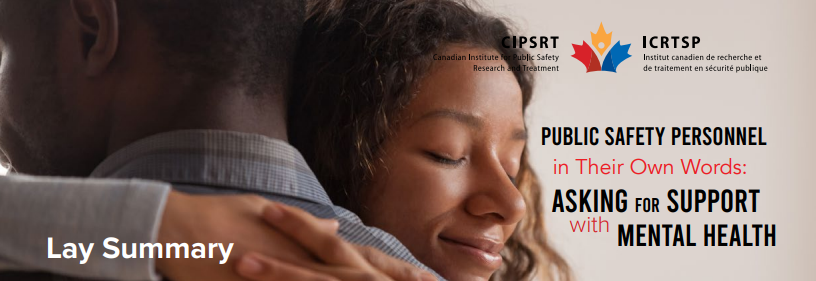Research Summaries

Why was the study done?
Canadian public safety personnel (PSP) are regularly exposed to dangerous and traumatic experiences that most civilians will never encounter. PSP experiences may take a physical, psychological, and social/interpersonal toll on PSP and their families. Few studies have been conducted that capture the perspectives of PSP (in their own words) about their experiences with trauma and their overall well-being.
What was done in the study?
An online survey was distributed to nearly 9000 public safety personnel. The survey included questions assessing PSP experiences with work-related stress injuries and symptoms. Participants were also invited to provide additional open-ended comments. The responses of 828 participants to the open-ended comments were examined and summarized.
What did we find out?
In analyzing the responses of PSP, the following core themes were identified:
- PSP reported exposure to repeated and extensive trauma with physical, psychological, and social/interpersonal effects. The effects on their families included marital breakdown, dissolved relationships with children, and increased stress, strain, and anger within the family.
- PSP described a sense of alienation between their past and present selves, suggesting that their work-related experiences have changed them in profound and lasting ways.
- PSP reported feeling that their employers and governing bodies ignored their personal needs and well-being (and the needs and well-being of their families). PSP also reported feeling powerless and vulnerable. At a deeper level, the comments of participants suggest they felt forsaken by their employers and government.
- The results also indicated that PSP wanted a strong national and federal response that emphasized:
1. recognition of PSP contributions;
2. recognition of the mental health challenges PSP experience; and,
3. measurable efforts toward improving supports for PSP who provide critical
support for the safety of all citizens.
Participants expressed a strong desire for such a national and federal response. Participants also reported little or no hope that meaningful changes would occur. The absence of hope is particularly concerning because hopelessness is an identified risk factor for suicide; however, following that notion, if meaningful hope can be provided, the risk for suicide may be lowered.
Where do we go from here?
The current study illustrates the value of asking PSP to describe, in their own words, their experiences with trauma, and the potential effects of such experiences. Participants described extensive exposure to trauma in their work, along with negative physical, psychological, and social/interpersonal effects. PSP reported feeling ignored and abandoned by their employers and government. The participants also argued for creating a national action plan to provide evidence-based supports for the mental and physical health for all PSP and their families. The same national action plan may innovative solutions for providing evidence-based treatment options and tailored pathways to accessing care.
The original wording of the study was changed and condensed for the current lay summary.
Original Article: Ricciardelli, R., Carleton, R. N., Groll, D., & Cramm, H. (2018). Qualitatively unpacking Canadian public safety personnel experiences of trauma and their well-being. Canadian Journal of Criminology and Criminal Justice, 60(4), 566-577. Open access available: https://www.utpjournals.press/doi/full/10.3138/cjccj.2017-0053.r2
Summary prepared by Abrams, A., Willis-Camp, T., Ricciardelli, R., and Carleton, R.N., 12 March 2019 Edited by Kossick, E. and Martin, R. September 2019